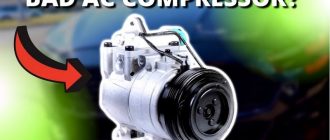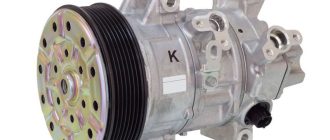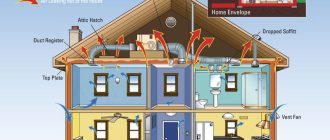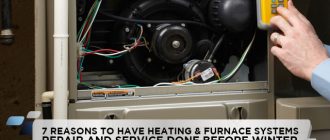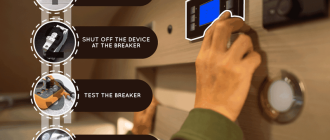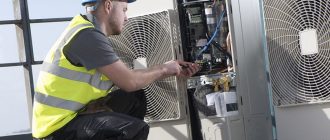How long do Goodman AC units last?
If you’re considering purchasing a new AC unit for your home, one of the questions you’re likely asking is: “How long do Goodman AC units last?”.
Goodman is a well-known and trusted brand in the HVAC industry, and their AC units are known for their durability and reliability. But like any appliance, there are factors that can affect how long your Goodman AC unit will last.
On average, a Goodman AC unit can last anywhere from 10 to 15 years with proper maintenance and care. However, there are a few things you can do to help extend the lifespan of your unit. Regularly cleaning and replacing filters, scheduling annual inspections and tune-ups, and keeping the area around the unit clear of debris can all help improve the longevity of your AC unit.
It’s also important to note that the lifespan of your Goodman AC unit can be influenced by factors such as the climate in which you live, the frequency of use, and the quality of installation. Factors like extreme temperatures, high humidity, and heavy usage can all impact the performance and lifespan of your AC unit.
In conclusion, while there is no exact answer to how long a Goodman AC unit will last, proper maintenance and care can help ensure that your unit performs optimally for many years to come.
How Long Do Goodman AC Units Last? Expert Guide
Goodman AC units are known for their durability and longevity. Many homeowners wonder how long these units can last and if they can rely on them for years to come.
The lifespan of Goodman AC units can vary depending on various factors such as usage, maintenance, and environmental conditions. However, on average, a well-maintained Goodman AC unit can last anywhere from 10 to 15 years.
In order to ensure the longevity of your Goodman AC unit, it is important to follow regular maintenance and servicing schedules. This includes cleaning or replacing air filters, checking refrigerant levels, and inspecting electrical connections. By keeping up with these maintenance tasks, you can help extend the lifespan of your unit and prevent any potential issues.
Additionally, the environment in which the Goodman AC unit operates can also impact its lifespan. Extreme temperatures, high humidity, and excessive dirt and debris can all contribute to wear and tear on the unit. Proper installation and placement, as well as regular cleaning, can help mitigate these factors and prolong the life of the unit.
It’s worth noting that while a Goodman AC unit can last for many years, there may come a time when it becomes less efficient or starts experiencing frequent repairs. In such cases, it may be more cost-effective to replace the unit rather than continue repairing it.
In conclusion, Goodman AC units have a lifespan of about 10 to 15 years when properly maintained. By following regular maintenance routines, ensuring a suitable operating environment, and being aware of signs of decline, homeowners can enjoy the cooling benefits of their Goodman AC unit for many years.
Lifespan of Goodman AC Units
Goodman AC units are known for their durability and long-lasting performance. These units are designed to withstand harsh weather conditions and provide consistent cooling for many years.
The lifespan of Goodman AC units can vary depending on various factors such as proper installation, regular maintenance, and usage. On average, a Goodman AC unit can last for 15 to 20 years. However, with proper care and maintenance, some units have been known to last even longer.
To ensure the longevity of your Goodman AC unit, it is crucial to have it installed by a professional HVAC technician. Improper installation can lead to premature wear and tear, reducing the lifespan of the unit. Regular maintenance, such as cleaning the filters, checking the refrigerant levels, and inspecting the system for any leaks or damage, can also help prolong the life of the unit.
In addition to proper installation and maintenance, the frequency and intensity of usage can also affect the lifespan of Goodman AC units. Units that are used more frequently or in extreme weather conditions may experience more wear and tear, potentially reducing their lifespan.
Overall, a Goodman AC unit offers a long lifespan, especially when properly installed and maintained. By taking care of your unit and following the manufacturer’s recommended maintenance schedule, you can enjoy reliable cooling for many years to come.
| Proper Installation | + |
| Regular Maintenance | + |
| Usage Frequency and Intensity | – |
Factors Affecting the Lifespan
Several factors can influence the lifespan of Goodman AC units. Understanding these factors is crucial in determining how long your AC unit will last.
| Quality of Installation | The installation process plays a significant role in the lifespan of an AC unit. Proper installation ensures that the unit functions efficiently and avoids unnecessary wear and tear, resulting in a longer lifespan. |
| Maintenance and Regular Service | Regular maintenance and servicing of the AC unit are essential to keep it running smoothly. Cleaning the filters, checking for leaks, and inspecting the electrical components can help prevent breakdowns and prolong the unit’s lifespan. |
| Usage and Climate | The frequency and intensity of AC usage, as well as the climate in which it operates, can impact its lifespan. Units that are used excessively or in extreme temperatures may experience more wear and tear, resulting in a shorter lifespan. |
| Manufacturer’s Quality | The quality of the AC unit itself, including the materials used and the manufacturing process, can affect its lifespan. Goodman AC units are known for their durability and longevity, but regular maintenance and proper usage are still essential for maximizing their lifespan. |
| Upgrades and Repairs | Investing in upgrades and timely repairs can help extend the lifespan of a Goodman AC unit. Replacing faulty parts, upgrading to more energy-efficient components, and staying up to date with technological advancements can all contribute to a longer-lasting unit. |
| Overall Care and Handling | The way the AC unit is cared for and handled by its owners can also impact its lifespan. Avoiding physical damages, keeping the unit clean and free of debris, and following the manufacturer’s instructions can go a long way in ensuring the AC unit lasts as long as possible. |
Considering these factors and taking appropriate measures can help you maximize the lifespan of your Goodman AC unit. Regular maintenance, proper installation, and responsible usage can all contribute to a longer-lasting and more efficient cooling system.
Regular Maintenance
Regular maintenance is crucial for ensuring the longevity and optimal performance of your Goodman AC units. By following a maintenance schedule, you can extend the lifespan of your AC unit and avoid costly repairs.
One of the most important maintenance tasks is to regularly clean or replace the air filters. Dirty air filters can restrict airflow, causing the AC unit to work harder and potentially leading to premature wear and tear.
In addition to cleaning or replacing the air filters, it’s important to clean the condenser and evaporator coils. Over time, these coils can collect dirt, dust, and debris, reducing the efficiency of the AC unit. Regular cleaning will help maintain the unit’s efficiency and prevent issues such as freezing or overheating.
Another crucial maintenance task is checking and cleaning the condensate drain line. A clogged drain line can lead to water leakage and potential water damage. By inspecting and cleaning this line regularly, you can prevent these issues.
Regularly inspecting and tightening electrical connections is also essential. Loose or damaged connections can lead to electrical problems and reduce the lifespan of the AC unit. Additionally, checking the thermostat settings and calibrating if necessary can help improve energy efficiency and prevent unnecessary strain on the unit.
Professional maintenance is recommended at least once a year, preferably before the start of the cooling season. A professional technician can thoroughly inspect and clean the AC unit, identify any potential issues, and ensure that it is in optimal condition.
By prioritizing regular maintenance for your Goodman AC units, you can help them last longer, save on energy costs, and ensure cool and comfortable indoor spaces.
Importance of Maintenance
Maintaining your AC unit is essential to ensure its longevity and proper functioning. Regular maintenance can significantly increase the lifespan of your Goodman AC units.
By scheduling routine maintenance checks and cleaning, you can keep your AC unit in optimal condition. Regular maintenance includes inspecting and cleaning the air filters, condenser coils, and evaporator coils. It also involves lubricating the fan motor and checking for any refrigerant leaks.
Proper maintenance helps prevent issues such as reduced cooling efficiency, increased energy consumption, and potential breakdowns. Regular cleaning and servicing of your AC unit ensure that it operates efficiently, providing cool air and maintaining a comfortable environment in your home or office.
Additionally, regular maintenance can also help identify and address minor problems before they escalate into more significant and costly repairs. By addressing issues early on, you can save on repair costs and avoid sudden breakdowns during hot summer months when your AC unit is most needed.
Overall, the importance of maintenance cannot be overstated when it comes to making your Goodman AC units last. By investing in regular maintenance, you can extend the lifespan of your AC unit, improve its energy efficiency, and enjoy reliable and consistent cooling for many years to come.
Signs of a Dying AC Unit
Goodman AC units, like any other air conditioning units, will eventually reach the end of their lifespan. While their exact lifespan can vary depending on factors such as usage, maintenance, and environmental conditions, there are some telltale signs that indicate a Goodman AC unit may be nearing the end of its life.
One of the first signs of a dying AC unit is reduced cooling or heating performance. If you notice that your Goodman AC unit is no longer keeping your home as cool or warm as it used to, it could be a sign that the unit is struggling to function properly.
Another sign to look out for is an increase in energy consumption. As Goodman AC units age, they can become less energy efficient, resulting in higher energy bills. If you’ve noticed a sudden increase in your electricity costs without any other apparent cause, your AC unit may be reaching the end of its lifespan.
Strange noises or unusual smells coming from your AC unit can also be indicators of a dying unit. Unusual banging, grinding, or rattling sounds could signal mechanical issues, while musty or burning odors could indicate electrical problems.
Frequent breakdowns and the need for constant repairs can also be signs that your Goodman AC unit is on its last legs. As a unit ages, its components become more prone to failure, leading to more frequent malfunctions.
Lastly, if your Goodman AC unit is over 15 years old, it’s likely nearing the end of its lifespan. While regular maintenance can extend the life of an AC unit, older units are more likely to experience significant wear and tear, making replacement a more cost-effective option.
If you’re experiencing any of these signs with your Goodman AC unit, it’s recommended to consult with a professional HVAC technician. They can assess the condition of your unit and provide guidance on whether repair or replacement is the best course of action.
Common AC Problems
When it comes to AC units, it’s important to know what common problems can arise and how to address them. Here are some of the most common issues that can affect Goodman AC units:
1. Lack of cooling: One of the main reasons people seek AC repairs is due to a lack of cooling. This problem can be caused by a variety of factors, including a malfunctioning compressor, low refrigerant levels, or a clogged air filter.
2. Strange noises: If you start hearing unusual noises coming from your AC unit, it’s a sign that something is wrong. Buzzing, grinding, or rattling sounds can indicate issues with the fan motor, loose parts, or debris in the system. It’s important to address these noises promptly to prevent further damage.
3. Leaking water: AC units are designed to remove moisture from the air, so a small amount of condensation is normal. However, if you notice excessive water leaking from your unit, it could mean that the condensate drain line is clogged or damaged. This can lead to water damage and mold growth if not addressed.
4. Uneven cooling: Inconsistent cooling throughout your home can be frustrating and uncomfortable. This problem can be caused by issues with the ductwork, thermostat, or a mismatched unit size for your living space. A professional can help determine the best solution.
5. Electrical issues: If your AC unit is not turning on or experiencing frequent power trips, it could indicate electrical problems. Faulty wiring, a malfunctioning capacitor, or a tripped circuit breaker can all be culprits. It’s essential to have these issues addressed promptly to avoid safety hazards.
6. Frozen coils: If you notice ice or frost on your AC unit, it’s a sign of trouble. This can be caused by restricted airflow, low refrigerant levels, or dirty coils. It’s crucial to address this issue as soon as possible to prevent further damage to the system.
Overall, regular maintenance and prompt repairs are essential to ensure your Goodman AC unit lasts as long as possible. If you encounter any of these common problems, it’s best to consult a professional HVAC technician to properly diagnose and fix the issue.
Troubleshooting
If you are experiencing issues with your Goodman AC unit, there are several troubleshooting steps you can take to identify and potentially resolve the problem:
- Check the power supply: Make sure that the AC unit is properly connected to a power source and that the circuit breaker has not tripped.
- Inspect the thermostat: Ensure that the thermostat is set to the desired temperature and mode of operation. Replace the batteries if needed.
- Check the air filters: Dirty or clogged air filters can restrict airflow and affect the performance of the unit. Clean or replace the filters regularly.
- Inspect the condenser unit: Remove any debris or obstructions around the outdoor unit that may be blocking airflow. Clean the condenser coils if necessary.
- Verify the refrigerant levels: Low refrigerant levels can lead to insufficient cooling. Consult a professional technician to properly recharge the system if needed.
- Check for leaks: Inspect the refrigerant lines for any visible leaks. Leaks should be repaired by a qualified technician to prevent further damage.
- Inspect the fan motor: A malfunctioning fan motor can cause poor airflow and reduced cooling efficiency. If the motor is faulty, it may need to be replaced.
- Test the compressor: If the AC unit is not cooling, the compressor may be faulty. Consult a professional technician to diagnose and repair compressor issues.
If you have followed these troubleshooting steps and are still experiencing problems with your Goodman AC unit, it is recommended to contact a professional HVAC technician for further assistance. Regular maintenance and prompt repairs can help extend the lifespan of your AC unit and ensure optimal performance.
Repairs vs. Replacement
When it comes to Goodman AC units, the question of whether to repair or replace them is often a difficult one. While Goodman AC units are known for their durability, they do not last forever. Understanding when to repair and when to replace your Goodman AC unit is crucial for maintaining a comfortable indoor environment.
How long do Goodman AC units last?
On average, Goodman AC units can last anywhere from 10 to 15 years. However, this lifespan can be influenced by several factors such as regular maintenance, usage, and environmental conditions. Regular maintenance, including cleaning and replacing air filters, can help prolong the lifespan of your Goodman AC unit.
When to repair your Goodman AC unit?
If your Goodman AC unit is experiencing minor issues or is still within its expected lifespan, it may be more cost-effective to repair rather than replace it. Common problems that can be repaired include faulty capacitors, refrigerant leaks, and worn-out fan motors. It is recommended to consult with a professional HVAC technician to diagnose and repair any issues properly.
When to replace your Goodman AC unit?
If your Goodman AC unit is older than 15 years or is experiencing major issues, it may be time to consider replacing it. Major issues that may warrant a replacement include compressor failure, frequent breakdowns, and significant energy inefficiency. A new, energy-efficient Goodman AC unit can provide better cooling performance and reduce your energy bills in the long run.
Cost considerations
When comparing the cost of repairs versus replacement, it is essential to consider both the immediate and long-term expenses. While repairs may seem cheaper upfront, frequent repairs can add up over time. On the other hand, investing in a new Goodman AC unit may require a higher upfront cost but can save you money on repairs and energy bills in the future. It is advisable to consult with a trusted HVAC professional to assess the overall condition of your unit and provide cost estimates for repairs and replacement.
Ultimately, the decision to repair or replace your Goodman AC unit depends on various factors, including the age, condition, and cost-effectiveness. By considering these factors and consulting with an HVAC professional, you can make an informed decision that will ensure optimal comfort and energy efficiency in your home.
Benefits of Upgrading
When it comes to AC units, longevity is always a concern. Homeowners want to know how long their AC units will last and if it’s worth upgrading to a newer model. In the case of Goodman AC units, they are built to last.
The average lifespan of a Goodman AC unit is around 15 to 20 years. However, with regular maintenance and proper care, some units can last even longer. This means that investing in a Goodman AC unit is a smart choice for homeowners looking for a reliable and durable cooling system.
Upgrading to a new Goodman AC unit comes with several benefits:
| 1. Improved Energy Efficiency | Newer Goodman AC units come with advanced technology that makes them more energy-efficient. This means that they require less energy to operate, resulting in lower energy bills for homeowners. |
| 2. Enhanced Comfort | Upgrading to a new Goodman AC unit allows homeowners to enjoy improved comfort. Newer models often come with features like variable speed fans and precise temperature control, ensuring a more consistent and comfortable indoor climate. |
| 3. Quieter Operation | Older AC units can be quite noisy when they run. By upgrading to a new Goodman AC unit, homeowners can experience a quieter operation, providing a more peaceful and enjoyable indoor environment. |
| 4. Warranty Coverage | New Goodman AC units typically come with comprehensive warranty coverage. This offers homeowners peace of mind, knowing that they are protected in case of any manufacturing defects or problems with their unit. |
| 5. Access to Latest Features | Technology in the AC industry is constantly evolving. By upgrading to a new Goodman AC unit, homeowners can take advantage of the latest features and advancements, such as smart home integration and advanced air purification systems. |
In conclusion, upgrading to a new Goodman AC unit offers numerous benefits, including improved energy efficiency, enhanced comfort, quieter operation, warranty coverage, and access to the latest features. With a lifespan of 15 to 20 years, investing in a Goodman AC unit is a smart choice for homeowners who prioritize durability and reliability.
Preventive Measures
To ensure that your Goodman AC units last as long as possible, it’s important to take preventive measures. By following these simple steps, you can help prolong the lifespan of your AC unit and keep it running efficiently for years to come.
1. Regular Maintenance: Good maintenance practices are essential for the longevity of your AC unit. Schedule regular inspections and tune-ups with a qualified technician to ensure that any potential issues are identified and addressed before they become major problems.
2. Clean and Replace Filters: The AC filters play a crucial role in keeping the unit clean and free from dust and debris. Regularly clean or replace the filters to ensure proper airflow and prevent strain on the system.
3. Keep the Surrounding Area Clean: Dust, dirt, leaves, and other debris can accumulate around the AC unit, hindering its performance. Regularly clean the area around the unit to prevent blockages and allow for proper airflow.
4. Provide Shade: Direct exposure to sunlight can cause the AC unit to work harder and potentially shorten its lifespan. Providing shade to the unit can help keep it cool and reduce the strain on the system.
5. Protect from Extreme Weather: Extreme weather conditions, such as storms and hail, can cause damage to the AC unit. Take necessary precautions to protect it from harsh elements to prevent potential damage.
6. Monitor and Adjust Temperature: Setting the thermostat to a reasonable level and avoiding extreme temperature changes can help reduce the workload on the AC unit, allowing it to operate more efficiently and last longer.
7. Hire Professional Installation: Proper installation is vital for the longevity of your AC unit. Hire a reputable HVAC professional who is experienced in installing Goodman AC units to ensure that it is installed correctly and in accordance with the manufacturer’s guidelines.
By following these preventive measures, you can maximize the lifespan of your Goodman AC unit and enjoy cool and comfortable indoor environments for years to come.
Warranty Coverage
Goodman AC units come with a warranty to provide peace of mind and protect your investment. The length of the warranty coverage can vary depending on the specific unit model and the terms and conditions set by Goodman. It is important to note that warranty coverage does not determine the exact lifespan of your AC unit, but it can give you an idea of the manufacturer’s confidence in their product.
The warranty typically covers any manufacturing defects or failures that occur within a certain period of time after the purchase of the AC unit. This can include issues with the compressor, coils, or electrical components. However, it is important to review the warranty documentation to understand what is included and any limitations or exclusions that may apply.
Goodman offers different levels of warranty coverage for their AC units, including standard and extended warranties. Standard warranties typically cover the AC unit for a certain number of years, while extended warranties can provide additional coverage beyond the standard warranty period.
When purchasing a Goodman AC unit, it is recommended to carefully review the warranty terms and conditions, as well as any additional warranty options available. This will help you understand the coverage provided and make an informed decision about your purchase.
Professional Installation
One of the key factors that determine how long Goodman AC units last is the quality of their installation. It is crucial to have your Goodman AC unit installed by a professional to ensure optimal performance and longevity.
Professional installation ensures that the unit is properly sized for your space and installed according to the manufacturer’s specifications. This helps prevent issues such as inefficient cooling or excessive strain on the system, which can reduce the lifespan of the AC unit.
A professional installation also ensures that all the necessary electrical and plumbing connections are made correctly, minimizing the risk of electrical or water damage. They will also properly seal and insulate the system, helping to improve energy efficiency and reduce the chances of air leaks.
Additionally, professional installers have the knowledge and experience to troubleshoot any potential issues during the installation process. This ensures that the AC unit is set up correctly and ready to operate at its optimum level, maximizing its lifespan.
Overall, investing in professional installation for your Goodman AC unit is essential for maximizing its lifespan. Proper installation not only ensures optimal performance but also reduces the likelihood of costly repairs or premature replacement. So, if you want your Goodman AC unit to last long, make sure to hire a professional installer.
Q&A:
What is the average lifespan of a Goodman AC unit?
The average lifespan of a Goodman AC unit is around 15 to 20 years. However, with proper maintenance and regular servicing, it can last even longer.
What factors can affect the lifespan of a Goodman AC unit?
Several factors can affect the lifespan of a Goodman AC unit, including the quality of the installation, the frequency of maintenance, the climate in which it operates, and the level of usage.
Is it worth repairing an older Goodman AC unit?
It depends on the specific circumstances. If the repair is minor and cost-effective, it may be worth fixing an older Goodman AC unit. However, if the repair costs are high or if the unit is already approaching the end of its lifespan, it might be more cost-effective to invest in a new unit.
What are some signs that indicate a Goodman AC unit may need replacement?
Some signs that indicate a Goodman AC unit may need replacement include frequent breakdowns, rising energy bills, uneven cooling, poor indoor air quality, and age (typically over 15-20 years). If your unit is exhibiting any of these signs, it’s a good idea to consult with a professional to determine if replacement is necessary.

